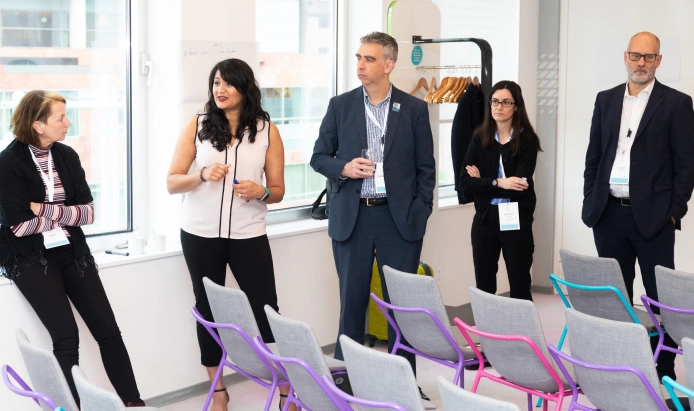
Activities
& Groups
Consortium Activities
MOMENTUM Project – This is an ongoing collaborative clinical development program and study being conducted by a subset of Consortium members to generate clinical evidence and publications around an initial set of indications.
Consortium Meeting – Regular meetings are arranged to facilitate clinical and technical research and development activities, transfer of best practice protocols and procedures and to allow users to share their experience. Sub-committee meetings are facilitated in conjunction with the general meeting.
Hypothesis Testing Program – MR-Linac Consortium is requesting proposals for R-IDEAL Stage 2A or 2B prospective hypothesis-testing clinical trials on or about MR-Linac treatments and is open to a range of proposals targeting:
- Individual tumour sites or multiple tumour sites with common clinical or technical characteristics; Improvements in cancer control, toxicity and/or treatment efficiency, simplicity and accessibility.
Anyone in the consortium is free to submit a hypothesis concept preferably through the relevant DSC. The proposal must meet the requested requirements and will follow the template addressing scientific and mission factors.
Sharing Best Practice – All consortium groups also concentrate on the transfer of best practice protocols and procedures and to allow users to share their experience.


Tumor Site
Groups (TSG)
These are collaborative groups working to establish standard protocols around specific clinical indications, to develop the evidence of clinical value for the specified indication, and to help assure MR-Linac is developed in support of the indications.
The roles of the TSG are to discuss and prepare predicate clinical study proposals for MRI studies (i.e., MR-sequence optimization for radiotherapy, MR-based planning study, MR-based contouring study, and development of consensus delineation atlases), to prepare joint clinical study proposals for feasibility and future randomized controlled trials. The TSG also communicates with other Work Groups on the necessary technical specifications and anticipated timelines.
Current TSG groups include: Prostate, Liver, Pancreas, Head and Neck, Lung, Bladder, Brain, Esophagus, Gynecological, Oligomets, Rectum
Structure of the Tumor Site Groups (TSG)
Any Member can apply to the CSC for a new Tumor Site Group to be created. Each TSG has a:
- Disease Site Coordinator (DSC) – Clinical role leading the development of clinical trials and associated protocols. The DSC facilitates trials on a tumor site, organizes, and supports the TSG, helps identify and secure adequate funding, and communicates with other clinical and technical Work Groups in the consortium.
- Disease Site Physicist (DSP) – Physics role to support the DSC in defining the technological requirements necessary to support the clinical trials roadmap for the TSG. The output from this discussion will be critical input to both the TSG and roadmap meetings. The DSP is responsible for ensuring that all necessary technical input is available for the TSG e.g. if the DSP is not an expert in MRI then they will need to take advice on that. If it proves to be a problem to have sufficient MR expertise, then the TSG should co-opt an MRI specialist.
- Disease Site Radiographer (DSR) – Radiographer role to support the DSC in defining the technological and workflow requirements necessary to support the clinical trials roadmap for the TSG. The output from this discussion will be critical input to both the TSG and roadmap meetings. The DSR is responsible for ensuring that all necessary Radiographer related input is available for the TSG.

Focus Groups
The focus groups are relatively small teams with controlled membership working on a specific topic and with well-defined aims and purpose.
The focus groups are led by an industry representative and a physics representative from one of the clinical sites. The creation and management of the Focus Groups is under the responsibility of MR-Linac Consortium in coordination with the physics leads but the CSC shall be kept regularly informed about the overall structure and suggest improvements as appropriate.

Brainstorm Groups
The brainstorm groups are informal groups of clinical and technical people who discuss a topic of common interest not covered by other groups.
Brainstorm Group creation has been a mechanism to facilitate creation of a formal TSG.